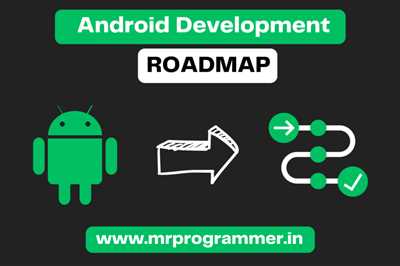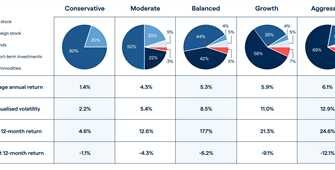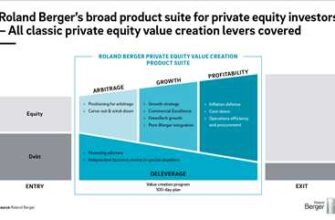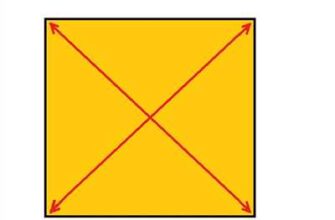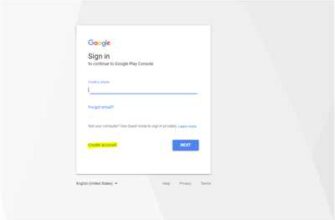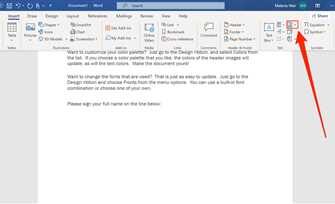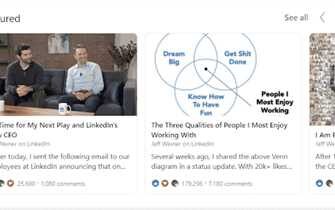
If you’re interested in learning how to develop mobile apps, specifically for Android devices, then you’re in the right place! Android programming is a widely-used skill that allows you to create powerful and user-friendly applications. Whether you’re a beginner or have experience in other programming languages, this article will guide you through the first steps of Android development.
Before we begin, it’s important to have a basic understanding of programming concepts. If you’re completely new to coding, don’t worry! There are tons of online courses and tutorials that can teach you the core principles of coding. Once you have a good grasp of the fundamentals, you can move on to learning Android programming.
The first thing you’ll need is the Android Studio, which is the official integrated development environment (IDE) for Android app development. Android Studio provides a user-friendly interface and many powerful features that will make your coding experience a breeze. You can download Android Studio for free from the official Android developer website.
Once you have Android Studio installed, it’s time to dive into the world of Android programming! The best way to learn is by doing, so let’s start with a simple “Hello World” app. In Android, an app is made up of one or more activities, each representing a specific screen in your app. An activity is a Java class that contains the logic and user interface for a particular screen.
To create a new activity, you can use the “New” button in Android Studio, or you can manually create the necessary files and code. Once you have an activity, you can write Java code to define its behavior. For example, you can create a button that displays a toast message when clicked, or you can retrieve data from a storage like JSON.
There are many resources available to help you on your Android programming journey. Websites like StackOverflow and Quora are great places to ask questions and get help from experienced developers. You can also find tutorials, articles, and sample code on websites like GitHub to gain a deeper understanding of Android development.
By building projects and working on real-world examples, you’ll gain valuable hands-on experience and get a better idea of how Android programming works. Don’t be afraid to experiment and try new things! Android development is a constantly evolving field, so it’s important to stay up to date with the latest trends and technologies.
In conclusion, starting Android programming requires a combination of knowledge, practice, and passion. If you have the desire to learn, the resources are everywhere. Begin by acquiring the basic programming knowledge, then move on to learning Android-specific concepts and tools. And remember, the most important part is to have fun and enjoy the process of creating your own Android apps!
How to get into Android Development Step by Step Approach
Are you interested in building your own Android apps? Do you want to learn how to develop Android applications step by step? If so, you’ve come to the right place. In this article, we will guide you through the process of getting started with Android development.
Before we begin, it’s important to note that Android development requires some knowledge of programming languages. If you’re new to programming, we suggest starting with some online courses or readings to familiarize yourself with the basics. Languages like Java or Kotlin are commonly used in Android development, so having a good understanding of these languages will be beneficial.
Once you have a basic understanding of programming languages, the next step is to set up your development environment. Android Studio is the official IDE for Android development and it provides all the tools you need to build Android apps. You can download Android Studio from the official website and follow the installation instructions.
After installing Android Studio, it’s time to start coding! Android apps are built using Java or Kotlin programming language. In Android development, an app consists of multiple activities, where each activity represents a screen in the app. To begin coding, you can start by creating a new project in Android Studio and then creating your first activity.
Once you have created your initial activity, you can start adding the desired functionality to your app. Android provides a wide range of libraries and APIs to help you add features like handling media, working with storage, and accessing device sensors. You can also make use of third-party libraries available on GitHub to enhance your app further.
As you progress, you’ll learn about more advanced concepts such as intents, which allow you to move between different activities in your app, and JSON parsing, which allows you to retrieve and display data from external sources. These concepts are core parts of Android development, so it’s essential to have a good understanding of them.
Building cool and custom UI elements is also an important part of Android app development. Android provides a wide range of UI components and you can also create your own custom UI elements to match your app’s theme and requirements.
While this article provides a brief overview of getting started with Android development, there is tons of additional information available online. Websites like Quora and Stack Overflow have dedicated communities where you can ask questions and get answers related to Android development. You can also follow Android developers on Twitter and read their blogs to stay up to date with the latest developments in the Android community.
In conclusion, if you’re interested in Android development, don’t be afraid to dive in and start coding. With the right knowledge and resources, you can turn your ideas into reality and create your own Android apps. So, what are you waiting for? Take the first step and begin your Android development journey today!
1 Learn a Programming Language

If you want to start Android programming, the first step is to learn a programming language. There are many programming languages you can choose from, but if you’re new to programming, Java is a great language to start with.
Java is the most widely used programming language for Android development and it has a large community of developers who can provide support and resources. It is a versatile language that can be used to create a wide range of applications, from simple “Hello World” apps to complex engineering projects.
There are many resources available to learn Java online. You can start by reading books, taking online courses, or even joining coding communities like Quora or GitHub. Some suggested readings include the “Head First Java” book, which is a beginner-friendly resource, and the “Java: A Beginner’s Guide” book, which covers more advanced topics.
Once you have a basic understanding of Java, you can start learning about Android development. Android development is done using the Android Studio IDE (Integrated Development Environment), which provides all the tools and libraries you need to build Android apps. You’ll also need to learn some XML (eXtensible Markup Language), HTML (Hypertext Markup Language), and JSON (JavaScript Object Notation) for handling user interfaces and data storage.
Android programming involves creating activities (the building blocks of Android apps) and using various APIs (Application Programming Interfaces) to work with device features like cameras, media playback, and networking. You’ll also need to learn how to work with external libraries and integrate them into your projects.
When you’re starting out, it’s a good idea to focus on creating simple apps to get a feel for the Android development process. For example, you could create an app that displays a “Hello World” message when a button is clicked. This will help you understand the core concepts of Android development.
As you gain more knowledge and experience, you can move on to more complex projects. There are tons of resources available online, including tutorials, sample code, and open-source projects on GitHub, to help you learn more advanced Android programming techniques.
Learning a programming language is just the first step in Android development. To become a proficient Android developer, you’ll need to keep learning and stay up to date with the latest trends and technologies in the field. Android development is a constantly evolving field, so there will always be more to learn!
Android Studio Index

When you’d like to start working with Android programming, Android Studio is the best tool to turn to. Building Android apps step by step can be a daunting task for beginners, but with Android Studio, you’ll have all the resources you need.
Maybe you’ve seen discussions on Quora or online courses that suggest you start with Java as your first language for Android development. While this is a common approach, it is not the only one. Android development can also be done using Kotlin, which is gaining more popularity everywhere.
Before you get into the world of Android programming, it’s a good idea to familiarize yourself with the Android Studio environment. There are tons of online tutorials and courses that can help you learn the basics.
1. Begin by focusing on the core concepts of Android Studio.
2. Next, learn about different projects you can create, such as the “Hello World” app or a custom Android activity.
3. Understand how to work with storage on Android devices, how to read and write data, and how to use the Intent system to move data between activities.
4. Get to know the Android Studio source code and how to customize it to suit your needs.
5. Discover libraries and APIs that can make your development process more efficient. There are many libraries available on GitHub that you can learn from.
Now that you have a basic idea of Android Studio, let’s move on to learning about Android programming.
When you’re starting out, it’s important to have a good understanding of core programming concepts. This includes knowledge of HTML, CSS, and other web-related languages. Learning about these languages will help you understand the structure and layout of Android apps, as well as how to make them more user-friendly.
Let’s suggest some sources where you can find cool readings and courses related to Android programming:
- Quora – a great platform for asking questions and getting answers from experienced developers.
- Twitter – follow Android developers and other tech experts for the latest updates and tips.
- Online courses – platforms like Udemy and Coursera offer a wide range of Android development courses.
- GitHub – explore open-source Android projects, learn from the source code, and contribute to the community.
- Android Developers website – the official website has tons of tutorials, documentation, and sample projects to help you get started.
Being familiar with these resources will be most helpful on your journey to becoming a skilled Android developer. Remember, the more you know, the more things you can create!
One cool thing you can do with Android Studio is work with JSON data. JSON is a lightweight data-interchange format that’s easy to read and write. You can use it to store and retrieve data from various sources, such as APIs or local files.
Now, let’s dive into some hands-on coding. Here’s an example of how to use Android Studio to create a simple app that displays a “Hello World” toast message when a button is pressed:
- Create a new Android Studio project and set up your development environment.
- In your project, open the activity_main.xml file and add a button to the layout:
- In the MainActivity.java file, add the following code to handle the button click event and display the toast message:
- Run the app on an emulator or physical device to see the result!
Button button = findViewById(R.id.myButton);
button.setOnClickListener(new View.OnClickListener() {
@Override
public void onClick(View v) {
Toast.makeText(MainActivity.this, "Hello World", Toast.LENGTH_SHORT).show();
}
});
By following this example, you’ll get a taste of Android development and gain the confidence to explore more complex projects in the future.
Remember, learning Android programming takes time and practice, but the more you work on projects and gain real hands-on experience, the better you’ll become. Good luck!
Related readings 📖
If you’re looking to get into Android programming, here are some related readings that can help you kickstart your journey:
- Android Studio – The official IDE for Android app development.
- Android Developer Guide – A comprehensive resource for learning Android development.
- GitHub – A platform where you can find a wide range of open-source Android projects to study and contribute to.
- Twitter – Follow Android developers and influencers to stay updated with the latest news and developments in the Android community.
- Quora – A question-and-answer platform where you can find discussions and insights about Android development.
- Udemy and Coursera – Online learning platforms that offer Android development courses for beginners.
By reading these resources, you’ll gain a lot of hands-on knowledge about Android programming, which will be crucial when you start working on your own projects. Remember to focus not only on coding but also on the core concepts and best practices of Android development. Now, grab a coffee, dive into these readings, and get ready to make some cool Android apps!
Media about Us
If you’re starting out in Android programming, there are tons of online resources that can help you learn more about it. Here are some media sources and platforms that can guide you on your journey:
- Quora: Quora is a popular Q&A platform where you can find answers to all your Android-related questions. There are many active and knowledgeable developers on Quora who can provide valuable insights.
- GitHub: GitHub is a widely used platform for hosting and collaborating on open-source projects. You can find a vast number of Android projects on GitHub that can help you understand how things work and learn from real-world examples.
- Twitter: On Twitter, you can follow Android developers and community leaders who regularly share insights, articles, tutorials, and tips. It’s a great way to stay up-to-date with the latest trends and news in Android development.
- Online courses: There are many online courses available that teach Android development from the basics to advanced topics. Websites like Udacity, Coursera, and Pluralsight offer comprehensive courses that cover all aspects of Android programming.
- Books: There is no shortage of books on Android development. Some well-known titles include “Android Programming: The Big Nerd Ranch Guide,” “Head First Android Development,” and “Android Programming for Beginners.” These books provide in-depth explanations and practical examples to help you grasp the concepts.
When starting with Android programming, it’s important to know that Java is the main programming language used. However, with the release of Android Studio, Kotlin has also gained popularity as an alternative language for Android development.
As you begin working on your first Android app, you’ll need to learn about activities, intents, and the Android manifest file. These are essential components that govern how your app behaves and interacts with the user.
Building user interfaces in Android involves XML for layout and Java or Kotlin for handling user interactions. There are numerous libraries and frameworks available that make UI development easier, such as ConstraintLayout, RecyclerView, and LiveData.
Data storage is another important aspect of Android development. You’ll need to know about SQLite databases, JSON, SharedPreferences, and other means of persisting data in your app.
One of the most widely used approaches for navigating between screens in Android is the concept of fragments. Fragments are modular UI components that can be combined to create a single screen or be reused across multiple screens.
In addition to these technical aspects, it’s always a good idea to have a strong understanding of software engineering principles and best practices. This will help you write clean, maintainable, and scalable code.
So whether you’re a beginner or an experienced developer, make sure to leverage these media sources and platforms to enhance your Android programming knowledge. Happy coding!
Courses
If you’re new to Android programming and want to learn how to start building Android apps, taking a course is a great way to begin. Here are some highly recommended courses to get you started:
1. Android Basics: User Interface
If you have no prior programming experience, this course is a perfect starting point. You’ll learn the basics of Android development and build your first “Hello World” app. This course will cover topics such as creating a button, handling user input, and displaying a toast message.
2. Android Basics: Networking
Once you have a good understanding of user interface development, this course will take you to the next step. You’ll learn how to make network requests using APIs, parse JSON data, and work with media files. This course will also introduce you to the concept of asynchronous programming.
3. Android App Development for Beginners
If you’re looking for a comprehensive course that covers all aspects of Android app development, this course is perfect for you. It will teach you how to build multiple projects, including a Twitter-like app, using various libraries and APIs.
4. Advanced Android App Development
If you already have some experience with Android programming and want to take your skills to the next level, this course will be perfect for you. You’ll learn advanced topics such as building custom UI components, using Android Studio’s debugging tools, and working with different storage options.
5. Android Engineering
This course will focus on the engineering aspect of Android development. You’ll learn about best practices, code organization, and how to create modular and maintainable apps. This course will also cover topics such as version control using GitHub and how to contribute to open-source projects.
These are just a few examples of the many online courses available for learning Android programming. They provide a structured approach to learning and will give you the knowledge and confidence to start building your own Android apps. Remember, the most important part of learning to code is practice, so be sure to apply what you learn in these courses by working on your own projects.
📖 Readings and Resources:
In addition to taking courses, there are tons of great resources available for learning Android programming. Here are some sources you might find useful:
- Android Developer Documentation
- Udemy’s Android Courses
- Coursera’s Android Specialization
- Stack Overflow
- YouTube tutorials
- GitHub
- Quora’s Android App Development topic
With the right courses and resources, you can learn the core concepts of Android development, get hands-on experience, and start building cool apps. Don’t be afraid to explore different programming languages and move beyond Android Studio. Learning Android programming opens up a world of possibilities, so start coding and see where it takes you!

